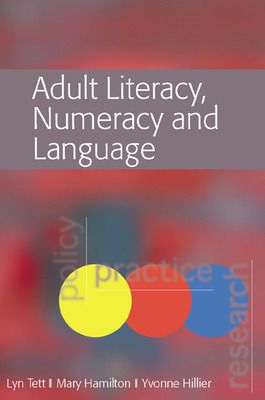Adult Literacy, Numeracy and Language: Policy, Practice and Research
Receive via shipping:
- Colour, print bound version of the complete text
Social Practice of Adult Literacy, Numeracy and language, Mary Hamilton, Yvonne Hillier and Lyn Tett
Section 1: Literacies as Situated Social Practice, David Barton, Ursula Howard and Lyn Tett
Section 2: Literacy, Language & multi-lingualism’ Elsa Auerbach, Celia Roberts and Mahendra Verma
Section 3: The Politics of Numbers’, Mike Baynham, Diana Coben and Alison Tomlin
Section 4: ‘Measuring and assessing adult literacy, numeracy and language’, Harvey Goldstein, Peter Lavender, Jay Derrick
Section 5: Crossing boundaries: facilitating interactions’, Yvonne Hillier, Juliet Merrifield and Mary Norton
Afterword
Adult Literacy, Numeracy and Language shows how the social practice approach to learning and teaching can be used to develop more inclusive views of adult literacy, numeracy and language. Bringing together the views of researchers, policy makers and practitioners, it helps readers to develop an understanding of contemporary policy developments and encourages them to examine their own practice as adult basic education teachers, in order to respond more effectively to the needs of their students.
This book is a valuable resource for practitioners, researchers and students on courses in adult and continuing education (particularly basic skills), postgraduate students, and researchers in the field of post-compulsory education.

